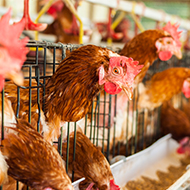Government announces support for puppy smuggling bill
“By taking advantage of policy loopholes, criminals have been able to traffic vulnerable animals into the UK” – Danny Chambers.
A new bill to tackle puppy smuggling looks likely to become law after it received government support.
The Animal Welfare (Import of Dogs, Cats and Ferrets) Bill, introduced to Parliament as a private members’ bill by MP and veterinary surgeon Danny Chambers, aims to introduce new restrictions on commercial imports of dogs, cats and ferrets.
The new rules will ban people from bringing dogs or cats into the UK that are younger than six months, more than 42 days pregnant, or have been mutilated (such as dogs with cropped ears).
The legislation will also make it harder for traders to import animals by pretending they are travelling with their own pets. According to government data, the number of non-commercial movements of pets has grown from 100,000 in 2011 to more than 320,000 in 2023.
With government support, the bill passed its second reading on Friday, 29 November and will now enter the committee stage. Similar legislation had been introduced to Parliament during the last government, but was not passed in time before this year’s general election.
Dr Chambers said: “By taking advantage of policy loopholes, criminals have been able to traffic vulnerable animals into the UK. This gap in the system has caused the suffering of thousands of innocent animals.
“As a vet, I think it is time we close this loophole, stop it from being exploited by organised criminals, and put an end to this cruel trade once and for all.”
The bill has also received support from animal welfare organisations, including the RSPCA and Dogs Trust.
Owen Sharp, CEO of Dogs Trust, said: “We have come close to putting an end to this cruel trade with multiple bills proposed to tackle this issue in previous years, sadly none of them have made it onto the statute books.
“We hope that this time will be different, and we can finally end puppy smuggling.”
Image © Shutterstock



 An Avian Influenza Prevention Zone (AIPZ) has been introduced across Wales.
An Avian Influenza Prevention Zone (AIPZ) has been introduced across Wales.